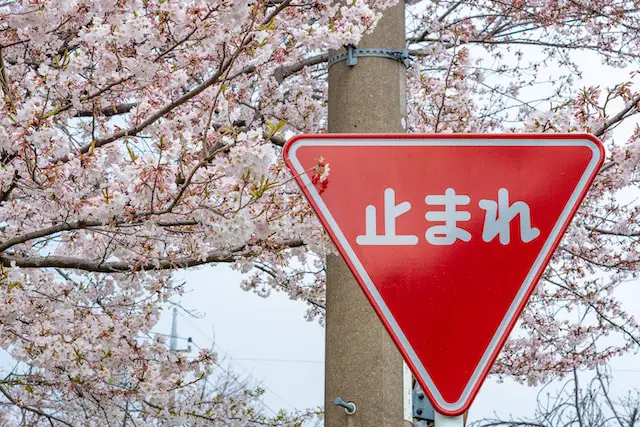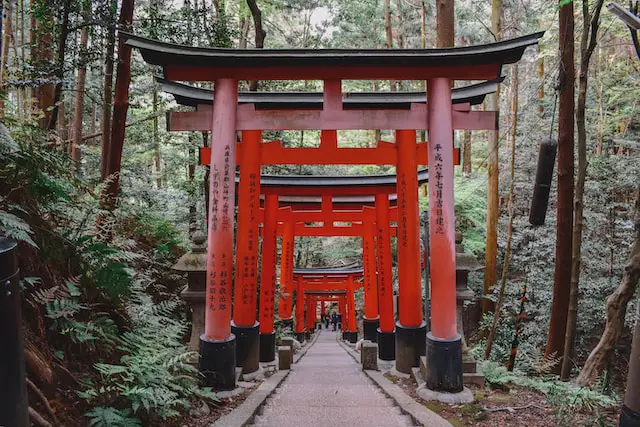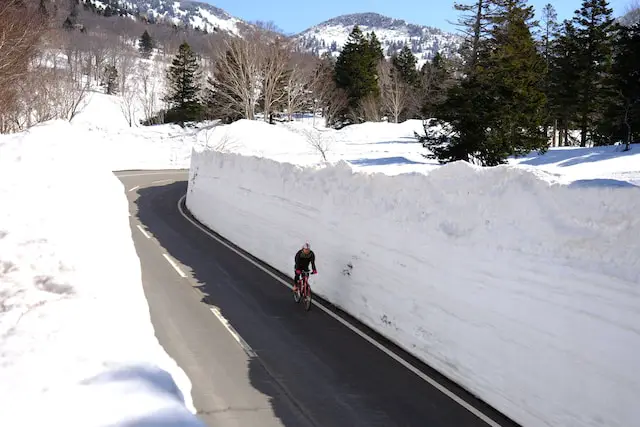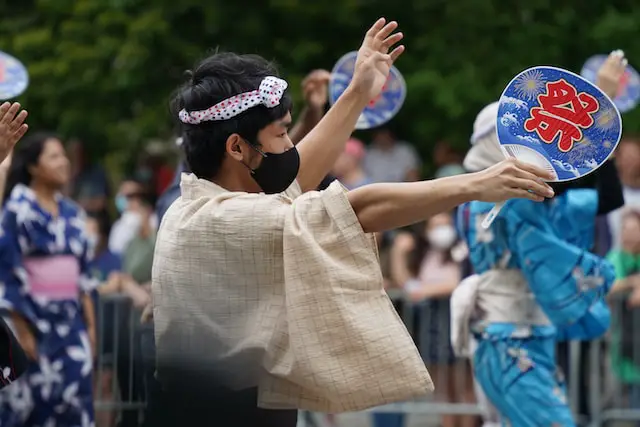Before embarking on your journey to the land of the rising sun, it’s beneficial to learn some basic phrases in the Japanese language. Even a rudimentary understanding can greatly enhance your Japan travel experience. This blog post aims to provide a guide for tourists on the essential aspects of the Japanese language to make your trip more comfortable and rewarding.
Starting with the basics, like greetings, we will gradually delve deeper into various facets of the Japanese language for tourists. Whether it’s dining and shopping, asking for directions, or handling emergency situations, we’ve got you covered. We’ll also share useful tips on understanding Japanese numbers and dates, and direct you towards reliable resources to help you practice these phrases.
This is your go-to Japan travel guide with a curated list of essential Japanese phrases to learn. This post is not only useful for beginners aiming to learn Japanese, but also for seasoned travellers hoping to brush up their skills.
Basic Greetings and Polite Phrases
For a tourist in Japan, understanding some basic Japanese greetings and polite expressions can contribute to a much richer travel experience. It allows you to show respect and courtesy in a country where politeness is appreciated deeply. Let’s dive into some vital “Japanese for beginners”.
“Ohayou Gozaimasu” (おはようございます) is how you say “Good Morning.” As the day progresses, you use “Konnichiwa” (こんにちは) for “Good Afternoon”. “Konbanwa” (こんばんは) translates to “Good Evening”. Before you set off to bed, you say “Oyasuminasai” (おやすみなさい) as “Good Night”. These “basic Japanese greetings” can be your first step in engaging with the locals in a friendly manner.
Apart from these, other “simple Japanese phrases”, such as “Arigatou Gozaimasu” (ありがとうございます) for “Thank you very much”, “Sumimasen” (すみません) as “Excuse me” or “I’m sorry” and “Onegaishimasu” (お願いします) meaning “Please” are essential. These “Japanese polite expressions” provide a kind demeanor while interacting, making you an appreciable guest in the country.
Remember, language is a beautiful path to people’s hearts. Your effort in communicating in their native tongue can earn you priceless smiles and unforgettable conversations, adding color to your Japan travel memories.
Essential Phrases for Dining and Shopping
Japan’s culinary world is a paradise of delectable delights, and shopping is an enriching experience of its own. To maximize this, here are some essential phrases to navigate these activities.
The magic phrase at restaurants is “Sumimasen, kore onegaishimasu” which translates to “Excuse me, this, please.” When pointing at the desired dish on a menu or display. For vegans or vegetarians, “Watashi wa bejitarian desu” will be your passport to convey “I am a vegetarian.” Stay attentive to dietary vocabulary, like “Niku” (meat), and “Sakana” (fish) to avoid unwanted surprises.
Shopping in Japan can be quite a thrill. To ask the price of an item, you can say, “Ikura desu ka?” meaning “How much is this?” If you want to buy something, say “Kore o kudasai“, translating to “This one, please.”
Part of the fun of travel lies in tasting exotic dishes and buying unique souvenirs. Having these phrases at your fingertips equips you with the confidence to explore and fully experience the dining and shopping scenarios in Japan.
So next time you find yourself ogling a sushi platter or eying a traditional yukata, don’t hesitate! Remember these “Japanese phrases for dining” and “shopping in Japan“, and you are all set to dive into the captivating world of “Japanese food vocabulary“.
The more you use these phrases, the more familiar you will become, enhancing your Japan travel experience!
Directions and Travel Phrases
Exploring a foreign country can be a wonderful adventure, yet also a little daunting if you’re unsure how to ask for directions or navigate public transportation. Your journey will be much smoother if you understand essential phrases related to travel in the “Japanese language for travel.”
“Sumimasen”(Excuse me) is a versatile phrase that can be used to grab attention or apologize. To ask for directions, simply say, “Sumimasen, (location) wa doko desu ka?” It translates to, “Excuse me, where is (location)?” Another useful phrase is “Chizu wo miseru koto ga dekimasu ka?”, which means “Can you show me on the map?” Knowing these phrases make “Navigating Japan “ a breeze.
When it comes to using public transportation, “Densha wa doko desu ka?” or “Where is the train?” could be helpful. Also, “Kono densha wa (destination) ni ikimasu ka?” meaning “Does this train go to (destination)?” can save you from getting on the wrong train! “Japan public transportation” can seem a bit complex at first, but it’s really efficient and comprehensive once you get the hang of it.
A simple “Arigato Gozaimasu” or “Thank you very much” can be a polite ending to your requests and cement a positive image as a tourist. These phrases can drastically improve your itinerary and overall travel experience in the land of the rising sun.
Preparation is key, and a few phrases can go a long way for eager travellers ready to explore all that Japan offers. Indeed, language isn’t a barrier, but a bridge to a more enriching and enjoyable travel experience.
Commonly Used Phrases in Emergency Situations
When traveling, it’s crucial to prepare for all scenarios, including potential emergencies. Japan is notably safe for tourists, but it never hurts to be prepared, right? Especially when the language barrier might pose a challenge during stressful times. This section focuses heavily on “Japanese emergency phrases,” “Japan safety tips,” and “Japan travel advice.”
No one anticipates troubles during their travels, but knowing a few emergency phrases can potentially make a notable difference. Here are a few phrases that might help in difficult situations:
- 救急車を呼んでください (Kyūkyūsha o yonde kudasai): This translates into “Please call an ambulance.” A vital sentence that you might need if you or someone around you requires immediate medical attention.
- 警察を呼んでください (Keisatsu o yonde kudasai): This phrase translates to “Please call the police.” Useful to remember in case you’re unfortunate enough to encounter a situation where the police are needed.
- 助けてください (Tasukete kudasai): A simple and powerful phrase, this translates to “Help me, please.” You can use this phrase in various situations where you’re in need of assistance.
Remember, if you have allergies, always carry a note, ideally in Japanese, that outlines your medical condition. Also, if you’re on any medication, have the names translated in Japanese as this will help healthcare providers give better assistance.
From a perspective of “Japan safety tips” and “Japan travel advice”, it’s always best to avoid unnecessary risks, stay aware of your surroundings, and respect local law and customs. But, having these phrases in your back pocket can increase your sense of safety as you explore and enjoy the Land of the Rising Sun.
And remember, kyōtsūkete – stay safe!
Simplified Japanese Numbers and Dates
Mastering Japanese numbers is a skill all by itself, yet incredibly significant. With the knowledge of numbers, it becomes notably easier to navigate, whether it’s at train stations, markets, or popular tourist spots. Learning some basic number terms will prove beneficial while in Japan.
In Japanese, the number system is simple, and once you learn numbers from 1 to 10, you can work your way up by combining them. For instance, 11 would be ten (Jyuu) – one (Ichi) – ‘Jyuu-Ichi’. For more complex numbers, such as those in the hundreds or thousands, phrases like ‘Hyaku’ for hundred and ‘Sen’ for thousand are handy.
Equally vital as numbers, closely linked, are dates. Japanese dates come into use when booking accommodations, confirming opening hours of attractions, and understanding public transportation timetables. Dates in Japan typically follow the Gregorian Calendar, and knowing the days of the week (Monday – ‘Getsuyōbi’ to Sunday – ‘Nichiyōbi’) and months of the year (January – ‘Ichigatsu’ to December – ‘Jūnigatsu’) can prove incredibly helpful.
For a thorough understanding of Japanese numbers and dates, various resources can aid you. You might want to consider flashcards, apps, or even YouTube tutorials. Stay tuned as we delve into the resources in the following sections.
To summarize, every bit you invest in learning these basic elements of the Japanese language will significantly enhance your overall experience in the beautiful land of the rising sun.
How to Practice these Phrases
The journey towards becoming conversant in another language can seem daunting but with the right tools, you’ll be breezing through “basic Japanese greetings” and “essential Japanese phrases” in no time.
If you’ve come this far in our “Japan travel guide”, it’s time for you to harness the power of technology to consolidate your learning. There are a plethora of language learning apps that specialize in “Japanese for beginners”. Apps like Duolingo, Rosetta Stone, and Babbel provide interactive lessons that make “learning Japanese online” not only accessible but also a fun-filled experience.
For those who prefer a traditional approach, language books such as “Japanese for Busy People” or “Genki” could be a fantastic resource. These books offer a systematic approach to “learn Japanese” and come with sections dedicated to real-life scenarios you’re likely to encounter as a tourist in Japan.
Other than apps and books, get a hold of websites such as Tofugu, Japanesepod101, and FluentU. These websites offer a wide range of resources starting from “basic Japanese phrases” to intricate aspects of the Japanese culture, enhancing your Japan travel experience.
While practicing, it’s crucial not to shy away from making mistakes. Remember, consistency is key. Even if you forget how to say ‘thank you’ in Japanese for the umpteenth time, go back to the lessons, note it again, and continue practicing. It’s all part of the learning process.
With these “Japanese language resources”, “Japanese practice” will eventually get you through even nerve-racking situations – like navigating Japan! So keep practicing and make your trip to Japan one for the books!
Conclusion
In closing, your adventure in the enchanting land of Japan can be exponentially more rewarding and memorable if you take a little time to learn Japanese. As you’ve discovered throughout this guide, even a basic understanding of Japanese greetings and polite expressions can bring warmer interactions and lasting impressions. Imagine yourself confidently saying “おはようございます” = Ohaiyogozaimasu (Good morning), “こんにちは” = konnichiwa (Good afternoon), or uttering “すみません = 、これは何ですか?” = Korewa nani desuka? (Excuse me, what is this?) whilst shopping at an intriguing marketplace–a hint of comprehension can go a long way.
Moreover, key Japanese phrases for dining can elevate your culinary voyage, and being able to navigate Japan on your own terms, using phrases related to directions, will enrich your travel experience. Knowing phrases for emergency scenarios not only ensures your safety but also gives you peace of mind during your journey.
Don’t forget the importance of understanding Japanese numbers and dates too; these are vital when trying to figure out train schedules or shopping at markets. The road to mastering these phrases may seem daunting at first, but with our suggested resources and plenty of practice, you’ll be exchanging pleasantries with the locals in no time.
So, as you embark on a journey to learn Japanese online or offline, embrace the culture, the language, and the warmth of the Japanese people. Use this Japan travel guide as a stepping stone in your exploration and let “Japanese for travellers” become your new mantra in preparation for the journey that awaits. Remember, language is an open door, and with a bit of effort and practice, you’re well on your way to making your Japanese travel experience truly unforgettable.





